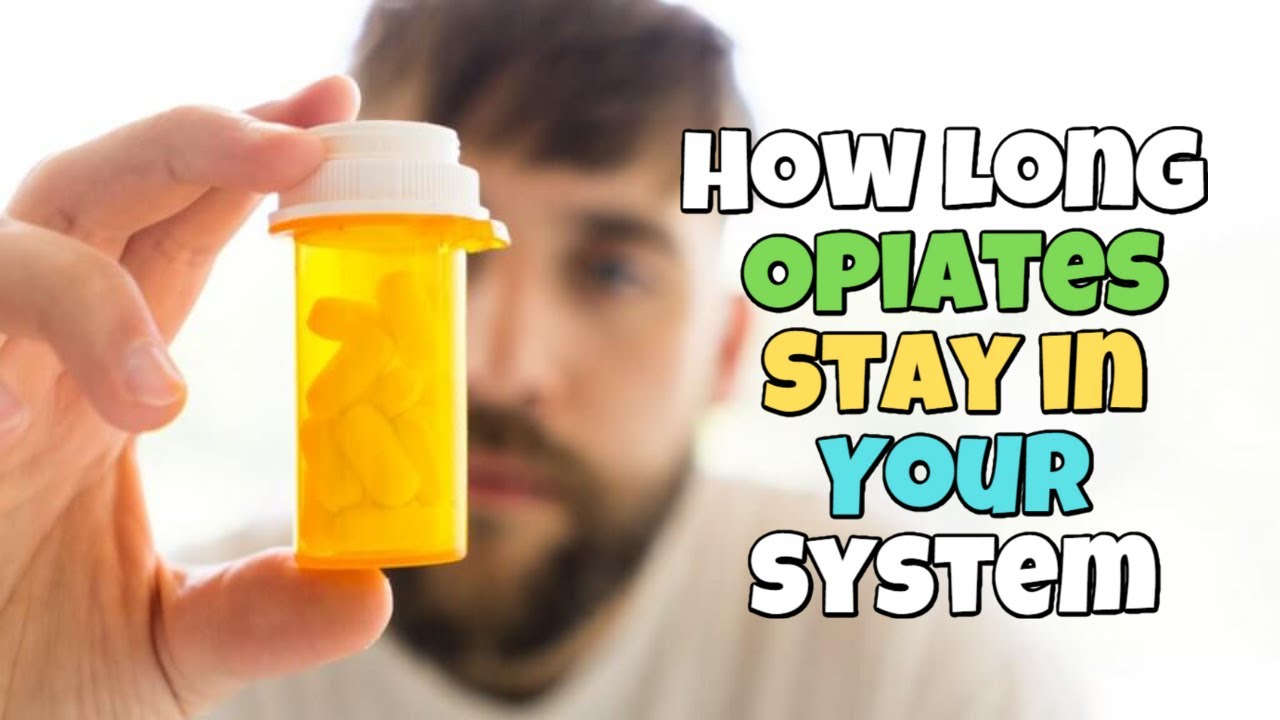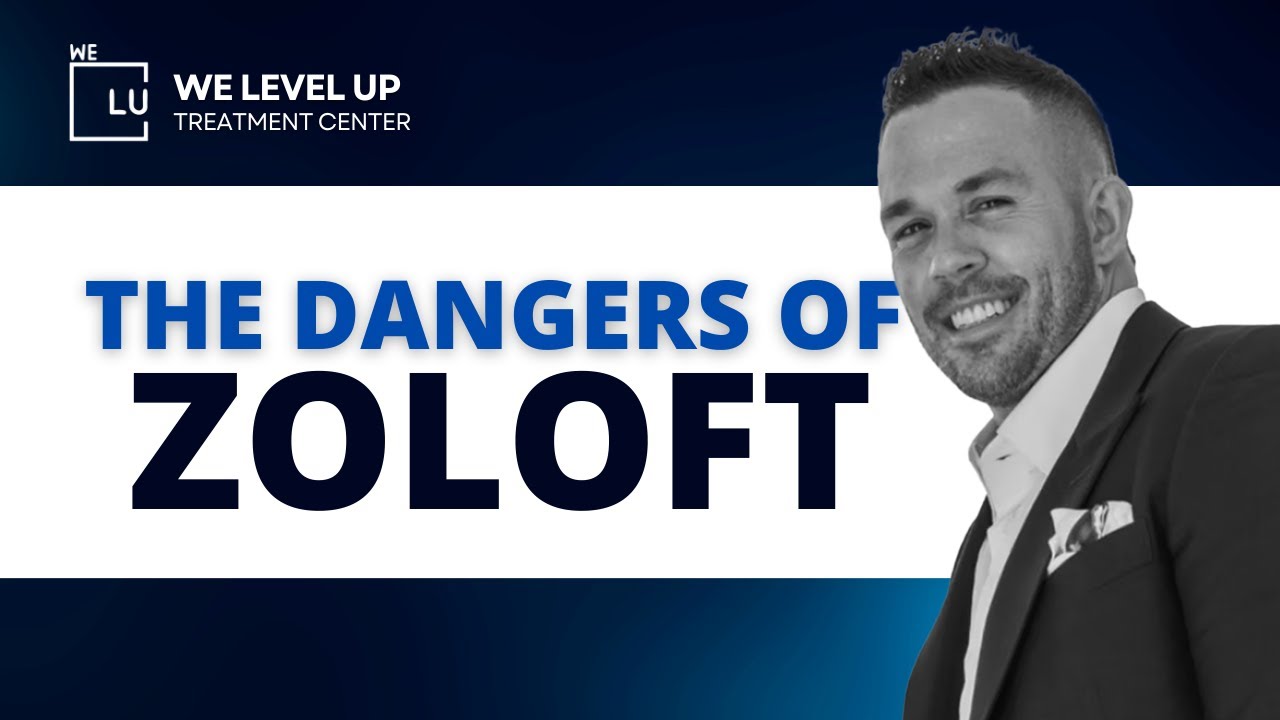Oxycodone, a potent opioid medication, poses a risk of overdose when consumed in high doses or when combined with other central nervous system depressants like alcohol or benzodiazepines.
But does oxycodone make you sleepy? Oxycodone has a notable impact on sleep patterns, affecting both the duration and quality of sleep. While this opioid pain reliever induces drowsiness, potentially extending sleep duration, it also interferes with the natural sleep cycle, causing issues with both falling asleep initially and maintaining continuous sleep.
Oxycodone can induce drowsiness due to its powerful opioid properties, which influence specific receptors in the brain and spinal cord. This action can result in a sense of euphoria, pain alleviation, and sedative effects, contributing to the drowsiness experienced by individuals taking the medication.
If you or someone you know is suffering from Oxycodone substance abuse or withdrawals, the We Level Up Treatment Centers can help. Speak with our hotline specialists and discover the support and professional-accredited addiction treatment programs we offer.
What is Oxycodone?
Oxycodone, a potent pain relief medication, is prescribed for moderate to severe pain management. It belongs to the class of prescription opioids, known for their efficacy in treating intense pain when other medications fail. Operating by binding to brain opioid receptors, oxycodone interrupts pain signals transmitted from the body. Dampening nerve communication throughout the body to the brain acts as a central nervous system depressant. This characteristic diminishes pain signals and slows respiratory functions, heart rate, and blood pressure.
Oxycodone’s Uses
Oxycodone tackles moderate to severe pain by altering how the body processes pain signals. It aids in managing these symptoms:
- Anxiety.
- Fatigue.
- Sleep difficulties related to chronic pain.
Immediate-release and extended-release are the primary forms of Oxycodone, often employed when other pain medications are ineffective or not tolerated well enough. It is typically administered post-surgery, injury, or for specific medical conditions demanding opioid treatment.
Oxycodone’s Side Effects
Common side effects of Oxycodone include:
- Nausea.
- Vomiting.
- Constipation.
- Drowsiness.
- Dry mouth.
Serious effects, such as respiratory depression, low blood pressure, breathing slowdowns, and addiction, can also manifest.
How Does Oxycodone Influence Sleep?
Because it is classified as a central nervous system depressant, oxycodone causes severe drowsiness and fatigue, impairing individuals’ ability to perform daily tasks safely, including driving, and potentially increasing the risk of developing an addiction to the drug.
The desire to use oxycodone not only as a pain reliever but also as a sleep aid is often motivated by the impediment that pain poses to adequate sleep. As a result, some patients may use oxycodone without medical supervision, seeing it as a way to induce sleep and relaxation even after their pain has subsided.
While oxycodone causes drowsiness and can speed up sleep onset, it also significantly impacts the duration and quality of non-rapid eye movement (NREM) and rapid eye movement (REM) sleep, lowering overall sleep quality. The inability to achieve deep, restful sleep impedes the replenishment of the body and brain, resulting in tiredness, lethargy, and mood fluctuations upon waking.
Drowsiness, however, is not the only sleep-related side effect associated with oxycodone. Following consumption, some people may experience insomnia and other sleep disruptions. Inadequate high-quality sleep, unfortunately, not only compromises the immune system but also alters pain perception, increasing sensitivity to pain stimuli.
Other Side-Effects of Oxycodone
Oxycodone is classified under the Controlled Substance Act (CSA) as a Schedule II controlled substance due to its heightened potential for abuse. This designation signifies the substance’s capability to induce severe physical or psychological dependency. Despite being available for prescription use by healthcare providers, the heightened risk of addiction, dependence, adverse interactions, and potential overdosing necessitates strict adherence to prescribed medical guidelines when consuming this medication.
The euphoric and calming sensations produced by oxycodone make individuals susceptible to developing an addiction, even when following professional medical recommendations. Additionally, the body often builds a tolerance to the pain-relieving effects of the medication, prompting the individual to escalate their dosage, subsequently elevating the likelihood of dependency and addiction.
Oxycodone addiction can lead to several detrimental side effects, including:
- Chronic sinus infections.
- Intense headaches.
- Withdrawal symptoms in case of irregular dosing, such as muscle cramps, restlessness, perspiration, vomiting, heightened heart rate, and insomnia.
- Respiratory issues.
- Swallowing difficulties.
- Hepatic complications.
- Diminished kidney function.

Skip To:
Learn More:
- Is Oxycodone Addictive
- What Is Oxycodone?
- Oxycodone Side Effects
- Opiate Withdrawal
- Opioid Withdrawal Timeline
- Opioid Withdrawal Symptoms
- Tramadol vs Oxycodone: Which is Better? Side Effect Comparison
- Oxycodone Dosage Guide, Precautions, and Max Dose
- Oxycodone Vs Oxycontin. Differences & Similarities, Abuse & Treatment Options
Get Help. Get Better. Get Your Life Back.
Searching for Accredited Drug and Alcohol Rehab Centers Near You? We Level Up Texas Is Opening Soon!
Even if you have failed previously and relapsed, or are in the middle of a difficult crisis, we stand ready to support you. Our trusted behavioral health specialists will not give up on you. When you feel ready or just want someone to speak to about therapy alternatives to change your life call us. Even if we cannot assist you, we will lead you to wherever you can get support. There is no obligation. Call our network hotline today.
FREE Addiction Hotline – Call 24/7
Is it Possible For Oxycodone To Cause Sleep Disorders?
Users of oxycodone commonly encounter various sleep disorders, including:
- Insomnia: A prevalent side effect of opioid painkillers like oxycodone, causing challenges in falling or staying asleep. Research indicates that the occurrence of insomnia among opioid users surpasses that of non-opioid users by more than 40%.
- Parasomnia: Oxycodone use can trigger parasomnia, a sleep disorder characterized by atypical behaviors and occurrences (e.g., sleep paralysis, sleepwalking) during sleep, alongside inducing insomnia.
- Hypersomnia: Oxycodone’s tendency to disrupt adequate sleep can lead to hypersomnia, resulting in excessive daytime sleepiness. This heightened sleepiness during the day can negatively impact various aspects of life, such as work performance, relationships, and mental well-being.
- Sleep-Disordered Breathing: Oxycodone may instigate sleep-disordered breathing, encompassing conditions like sleep apnea and hypopnea, involving irregular breathing patterns during sleep.
- Mixed Sleep Disorders: Some oxycodone users may experience a combination of sleep disorders. For instance, individuals facing night terrors (parasomnia) might also develop excessive daytime sleepiness.
Sleep disorders can significantly disrupt personal and professional aspects of life. If you are using oxycodone and encountering sleep difficulties or experiencing daytime drowsiness, disturbed sleep, or similar symptoms, it is advisable to seek guidance from a healthcare professional.
Long-term Effects of Oxycodone Use
- Development of a severe tolerance.
- Emergence of withdrawal symptoms (indicative of physical dependence).
- Potential development of an opiate use disorder.
- Occasional cases of liver and kidney failure after extended use.
- Brain changes lead to issues with attention, memory, and problem-solving.
When used as prescribed and monitored by a physician, the risk of detrimental long-term effects related to medicinal use is significantly minimized. Prolonged misuse raises the likelihood of these adverse long-term effects.
Get Help. Get Better. Get Your Life Back.
Searching for Accredited Drug and Alcohol Rehab Centers Near You? We Level Up Texas Is Opening Soon!
Even if you have failed previously and relapsed, or are in the middle of a difficult crisis, we stand ready to support you. Our trusted behavioral health specialists will not give up on you. When you feel ready or just want someone to speak to about therapy alternatives to change your life call us. Even if we cannot assist you, we will lead you to wherever you can get support. There is no obligation. Call our network hotline today.
FREE Addiction Hotline – Call 24/7Is it Dangerous to Have Sleeping Problems Caused by Oxycodone?
If you use oxycodone or other opioids, it’s critical to maintain a close relationship with your healthcare provider to effectively manage your dosage and address any side effects, such as sleep disturbances.
The variety of sleep disorders associated with opioid use can have a significant impact on your overall well-being and health, potentially resulting in dangerous situations.
Among the dangers associated with oxycodone-related sleep issues are:
- Sleep-disordered breathing, such as sleep apnea, disrupts breathing patterns sporadically during the night. When coupled with oxycodone-induced respiratory depression (i.e., slow, shallow breathing), it can pose fatal risks.
- High oxycodone doses may intensify respiratory depression, which is particularly dangerous when combined with conditions like sleep apnea. This scenario can lead to oxygen deprivation during sleep, causing organ damage and failure.
- Opioid-induced insomnia can swiftly result in sleep deprivation, elevating the risks of heart disease, heart attack, stroke, and Type 2 diabetes.
- Mixing oxycodone with sleep aids or sedatives in an attempt to enhance sleep quality can have fatal consequences. Combining medications without consulting a doctor can be perilous. Moreover, combining oxycodone with alcohol should be strictly avoided.

While the initial impact of sleep disturbances due to drugs like oxycodone may seem insignificant, neglecting these issues is not advisable.
In the short term, inadequate sleep can influence your quality of life, while in the long term, it could pose life-threatening risks. Seeking medical attention for sleep-related issues linked to oxycodone use is crucial to mitigate potential dangers.
Start a New Life
Begin with a free call to an addiction & behavioral health treatment advisor. Learn more about our dual-diagnosis programs. The We Level Up treatment center network delivers recovery programs that vary by each treatment facility. Call to learn more.
- Personalized Care
- Caring Accountable Staff
- World-class Amenities
- Licensed & Accredited
- Renowned w/ 100s 5-Star Reviews
We’ll Call You
Potential Warnings on Oxycodone Overdose
Oxycodone carries a potential risk of abuse and addiction, increasing the possibility of overdose and fatal outcomes. It might also result in severe, potentially life-threatening breathing difficulties. To minimize these risks, your healthcare provider should prescribe the lowest effective dose of oxycodone for the shortest duration possible.
Breathing problems may be more pronounced when beginning this medication, after dosage adjustments, or when an incorrect dose/strength is taken. Combining this medication with alcohol or other substances that induce drowsiness or respiratory issues can lead to severe side effects, including death.
Additionally, other drugs may impact the elimination of oxycodone from your system, affecting its efficacy. Familiarize yourself with oxycodone’s administration guidelines and medications that should be avoided. Review the Drug Interactions section for more information. Seek immediate medical attention if severe side effects like slowed or shallow breathing, unusual dizziness, extreme drowsiness, or difficulty awakening occur.
Safeguard this medication to prevent theft, misuse, or abuse. If someone unintentionally ingests this drug, seek immediate medical assistance.
For women of childbearing age, discussing the risks and benefits with their doctor(s) before using this medication is crucial. Notify your doctor if you are pregnant or planning a pregnancy. During pregnancy, use this medication only when necessary, as it may slightly heighten the risk of birth defects within the first two months of pregnancy. Prolonged or high-dose usage close to the expected delivery date might negatively impact the unborn baby.
To mitigate these risks, use the lowest effective dose for the shortest duration. Newborns born to mothers who used this medication extensively may exhibit severe (possibly fatal) withdrawal symptoms. Notify the doctor promptly if you observe persistent crying, slowed breathing, irritability, tremors, vomiting, diarrhea, feeding difficulties, or inadequate weight gain in your newborn.
Precautions on Oxycodone
Inform your healthcare provider or pharmacist about any allergic reactions to oxycodone, other opioid pain relievers, or any other allergies you may have. The inactive ingredients present in this product could trigger allergic reactions or other complications. Consult your pharmacist for more information.
Before commencing this medication, disclose your medical history to your healthcare provider or pharmacist. This includes any brain disorders, breathing problems like asthma or sleep apnea, kidney or liver disease, mental or mood disorders, history of substance use disorder, gastrointestinal issues, urinary difficulties, gallbladder or pancreatic disease.
Opening Soon! First-Class Facilities & Amenities
World-Class High-Quality Addiction & Mental Health Rehabilitation Treatment
Coming Soon! Rehab Centers TourRenowned Addiction Centers. Serene Private Facilities. Inpatient Rehab Programs Vary.
FREE Addiction Hotline – Call 24/7Proven recovery success experience, backed by a Team with History of:
15+
Years of Unified Experience
100s
5-Star Reviews Across Our Centers
10K
Recovery Success Stories Across Our Network
- Low Patient to Therapist Ratio
- Onsite Medical Detox Center
- Comprehensive Dual-Diagnosis Treatment
- Complimentary Family & Alumni Programs
- Coaching, Recovery & Personal Development Events
Managing Sleep Issues Caused by Oxycodone
Oxycodone-triggered sleep disruptions can impede one’s ability to lead a content and healthy life. While seeking professional medical assistance is crucial in addressing these concerns, there are several methods to enhance sleep quality:
- Engage in regular exercise: Establishing a regular physical activity routine can facilitate quicker sleep onset for those grappling with insomnia. However, if exercising in the evening, consider opting for mild activities like walking or yoga, as vigorous workouts before bedtime might exacerbate sleeplessness.
- Enhance sleep hygiene: Cultivating good sleep habits promotes improved sleep. Consistent sleep and wake times, reducing screen time to at least 30 minutes before bedtime, and ensuring a well-ventilated sleeping environment are among the practices to consider.
- Adopt a balanced diet: Paying attention to nutrition plays a significant role in enhancing sleep quality. Eliminating processed carbs, saturated fats, and excessive sugar from your diet can contribute to better sleep. Moreover, avoiding substantial meals before bedtime can aid in achieving restful sleep.
- Limit alcohol, caffeine, and nicotine intake: Substances like nicotine, caffeine, and alcohol possess stimulating properties that can hinder the ability to fall or remain asleep. It’s advisable to abstain from consuming these substances at least 3–6 hours before bedtime to promote better sleep.
- Avoid staying in bed: If unable to fall asleep within 20–30 minutes, it’s recommended to leave the bed and engage in a relaxing activity like reading or knitting until drowsiness sets in, then return to bed.
While these practices may aid in enhancing sleep quality affected by oxycodone-induced sleep disorders, seeking guidance from healthcare professionals remains paramount for comprehensive management and treatment.
Do You Have an Oxycodone Addiction? Get Help Now
Recovery from oxycodone addiction is possible with the proper support and treatment. At Level Up Treatment Center, we specialize in comprehensive addiction treatment programs tailored to your unique needs.
Our evidence-based treatments include:
- Medically Supervised Detoxification: Safely manage the withdrawal process under medical supervision to ease discomfort.
- Individualized Therapy: Engage in one-on-one counseling to address underlying issues contributing to addiction.
- Group Therapy: Participate in supportive group sessions to gain insights, share experiences, and build a strong support network.
- Holistic Approach: Incorporate holistic therapies like yoga, meditation, and mindfulness to promote overall well-being.
Why Choose Level Up Treatment Center?
At Level Up Treatment Center, our dedicated team of professionals is committed to guiding you through every step of your recovery journey. We prioritize your well-being and provide a nurturing environment conducive to healing and growth.
Take the first step towards recovery today. Contact us to begin your journey to a drug-free life. You don’t have to face addiction alone—we are here to help you reclaim control and achieve lasting sobriety.
Start a New Life
Begin with a free call to an addiction & behavioral health treatment advisor. Learn more about our dual-diagnosis programs. The We Level Up treatment center network delivers recovery programs that vary by each treatment facility. Call to learn more.
- Personalized Care
- Caring Accountable Staff
- World-class Amenities
- Licensed & Accredited
- Renowned w/ 100s 5-Star Reviews
We’ll Call You
How Long Do Opiates Stay in Your System?
Search We Level Up TX Does Oxycodone Make You Sleepy? Is It Dangerous? Topics & Resources
Sources
- Drug Enforcement Administration. “Oxycodone.” April 2020. Does oxycodone make you sleepy? do oxycodone make you tired? Oxycodone sleep, oxycodone for sleep, does oxycodone make you sleep? R
- Canadian Agency for Drugs and Technologies in Health. “Opioid Formulations With Tamper-Resistan[…]roducts and Policies.” March 2017.
- American Society of Addiction Medicine. “National Practice Guideline for the Treatment of Opioid Use Disorder“>National[…] Use Disorder.” December 18, 2019. Do oxycodone make you sleepy? oxycodone sleep, oxycodone for sleep, does oxycodone make you sleep? Related Articles
- Hallare, Jericho & Gerriets, Valerie. “Half-Life “>Half Life.” StatPearls, June 23, 2022. Do oxycodone make you sleepy? oxycodone sleep, oxycodone for sleep, does oxycodone make you sleep? Related Articles
- Gryczynski, Jan, et al. “Hair Drug Testing Results and Self-reported Drug Use among Primary Care Patients with Moderate-risk Illicit Drug Use“>Hair Dru[…]icit Drug Use.” Drug and Alcohol Dependence, May 17, 2014. Do oxycodone make you sleepy? Oxycodone sleep, oxycodone for sleep, does oxycodone make you sleep? Related Articles
- LabCorp. “Drug Test Summary for Urine Oral Fluid and Hair“>Drug Tes[…]luid and Hair.”
- ARUP Laboratories. “Drug Plasma Half-Life and Urine Detection Window“>Drug Pla[…]ection Window.” September 2022. Do oxycodone make you sleepy? Oxycodone sleep, oxycodone for sleep, does oxycodone make you sleep? Related Articles
- ARUP Laboratories. “Therapeutic Drug Monitoring“>Therapeu[…]ug Monitoring.” February 2023.
- Verstraete, Alain G. & Mukhdomi, Taif. “Clinical Drug Testing “>Clinical[…]Drug Testing .” StatPearls, April 23, 2023. Does oxycodone make you sleepy? Do oxycodone make you sleepy? oxycodone sleep, oxycodone for sleep, does oxycodone make you sleep? Related Articles
- Drugs.com. “Oxycodone Monograph for Professionals“>Oxycodon[…]Professionals.” April 19, 2023. Do oxycodone make you sleepy? Oxycodone sleep, oxycodone for sleep, does oxycodone make you sleep? Related Articles






